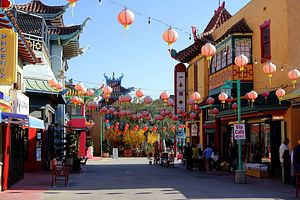Trans-Pacific View author Mercy Kuo regularly engages subject-matter experts, policy practitioners and strategic thinkers across the globe for their diverse insights into U.S. Asia policy. This conversation is with Matt Sheehan – founder of the Chinafornia newsletter, a newly-launched newsletter on interlinkages between California and China; former China correspondent for The Huffington Post and The World Post; and author of a forthcoming book, Chinafornia: Working With Chinese Investors, Immigrants and Ideas on U.S. Soil – is the 79th in “The Trans-Pacific View Insight Series.”
How might the Trump White House impact the future of U.S.-China relations?
The potential disasters emerging from Trump’s China policies are well-known: a crippling trade war, a rollback of climate progress, and a potential military confrontation in the South China Sea. There’s plenty of doomsday to go around in all those scenarios.
What is less often talked about is the way Trump could wipe out a decade of progress in the grassroots connections between the countries. Up through about 2008, the U.S.-China story was dominated by trade – the anonymous exchange of cash for cheap imports. But in the last decade we’ve seen a flourishing of local, face-to-face ties between Chinese and American people.
A wave of Chinese investors, students, developers, home-buyers, filmmakers, and engineers are impacting communities around the country. They’re bringing the real heart of the relationship down from the realm of international diplomacy and into our neighborhoods, businesses, and schools. There is a lot of potential upside here: leveraging Chinese capital, consumer spending and talent to benefit American communities. Just as important, that kind of deep, personal integration lays the groundwork for a much closer and more cooperative relationship decades into the future.
While Trump can’t unilaterally squash these grassroots ties, he could poison the well by turning the public perceptions in both countries toxic.
What is the role of California in advancing cooperative bilateral relations?
As the top destination for investors, students, tourists, and home-buyers, California is the living laboratory for this new era of U.S.-China relations.
Chinese developments are transforming California skylines, and the state was the destination for one-third of Chinese home-buyers in the U.S. – a group that spent $27.3 billion annually around the country. Chinese entrepreneurs are bringing a flood of capital and talent into Silicon Valley, and opportunities in the booming Chinese box office have Hollywood desperate to please Chinese censors and moviegoers. Over 50,000 Chinese students at California universities spent approximately $1.8 billion in the state, changing the equation for how California funds its public universities. Even in climate policy, California led the way in forging partnerships with Chinese policymakers that shaped China’s own carbon markets
This is a real opportunity to build a more localized and productive relationship, one that focuses on creating jobs, housing and educational opportunities. But it’s also a risky time. As China’s footprint here grows, so does the likelihood of a local backlash – against Chinese home-buyers, corporations, or even students. The key task in the years ahead is to make sure that these new ties really work to benefit average Americans.
Identify key business sectors that are and will continue to attract Chinese investment.
For this, it’s best to look at what industries China desperately needs to grow. China’s economy is going through a pretty wrenching transition away from its old exports-and-infrastructure model toward an economy driven by consumer spending on technology, entertainment, and services.
Upgrading those sectors means Chinese companies are spending big in Hollywood, Silicon Valley, and hospitality. Activity in mixed-use real estate is also on the upswing. Chinese companies love pouring concrete, but they also see an opportunity to leverage Chinese tourists and home-buyers abroad while learning from world-class American developers.
Explain the dynamic of how Chinese investment in Hollywood might bolster China’s soft power and perception management.
The government and some leading companies claim they want to promote China’s image around the world – both by squashing negative portrayals and promoting positive ones. That goal seems short-sighted at best.
Attempts to censor negative China content look pathetic, even when done voluntarily by Hollywood studios. In terms of spreading “positive energy” about China, the kind of content that really impacts perceptions today emerges organically and often online. What was the most impactful bit of soft power to emerge out of Asia in recent years? Gangnam Style. That kind of virality can’t be bought.
What most concerns you and Californians about the Trump’s administration’s China policy?
The most frightening scenarios emerge out of a situation when leaders of both countries feel threatened at home. If Trump’s poll numbers continue to sink, and high tariffs on Chinese goods have driven up unemployment on the mainland, you could see both Trump and Xi under great pressure to prove their “toughness.” Throw in an accidental collision in the South China Sea, and you don’t know where things go from there.

































